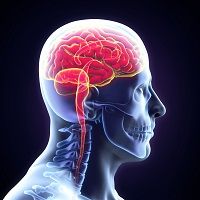Blood Brain Barrier Protein Exacerbates Symptoms of Alzheimer's Disease
A blood brain barrier protein may exacerbate symptoms of Alzheimer's disease, according to research published in Nature Neuroscience.

A deficiency of the protein that moves glucose across the blood brain barrier may intensify the effects of Alzheimer’s disease, according to research published in the journal Nature Neuroscience.
Researchers from the University of California observed the glucose transporter GLUT1 in mice models of Alzheimer’s disease in order to determine the effects on the blood brain barrier. The researchers noted that other studies in the past have indicated that diminished glucose uptake in the brain among those at risk for Alzheimer’s disease, those with a family history, and/ or those who develop the disease but show no cognitive impairment. GLUT1 is responsible for bringing glucose — the primary energy source of the brain – across the blood brain barrier. The blood brain barrier protects the brain and prevents entry of blood and pathogens into the brain across a cellular layer.
For this study, the researchers used transgenic mice in their experiment to prove that GLUT1 is essential in maintaining capillary networks, blood flow, and blood brain barrier integrity. The researchers found that as early as 2 weeks of age and by 6 months of age, the mice demonstrated neuronal dysfunction, behavioral deficits, elevated levels of amyloid beta peptide, behavioral changes, and neurodegenerative changes because of GLUT1 deficiencies. The GLUT1 deficiency in the endothelium additionally was responsible for the breakdown of the blood brain barrier.
“Our results suggest that GLUT1 deficiencies at the blood brain barrier are not just symptoms of Alzheimer’s but, in fact, lead to a series of vascular injuries that worsen the effects of the disease,” principal investigator Berislav V. Zlokovic, MD, PhD, explained in a press release. “We do not know yet whether medicine can restore GLUT1 expression, but we believe that targeting the protein may help prevent Alzheimer’s from getting worse among individuals predisposed to develop the disease.”
In the future, the authors want to explore identification of the metabolic pathways that GLUT1 deficiencies in the blood brain barrier influence. For example, they may examine brain metabolism or whether early embryonic GLUT1 loss can affect the central nervous system differently than a deficiency of GLUT1 incurred later in developmental stages.